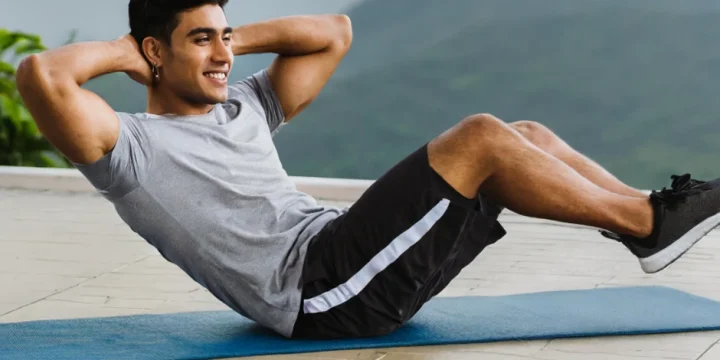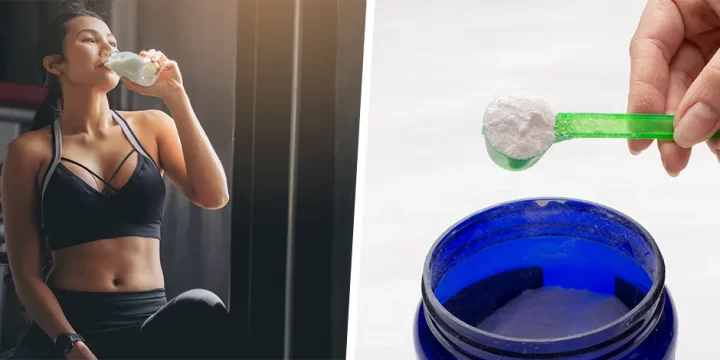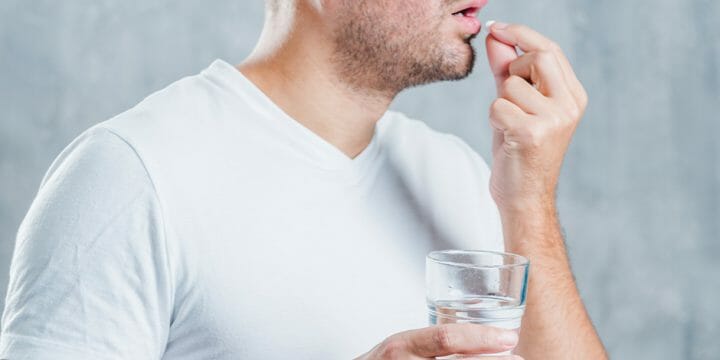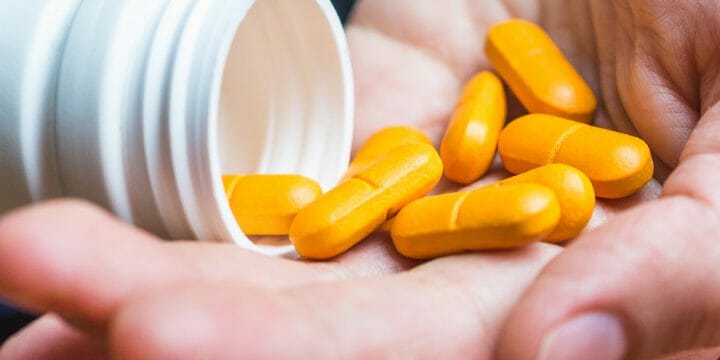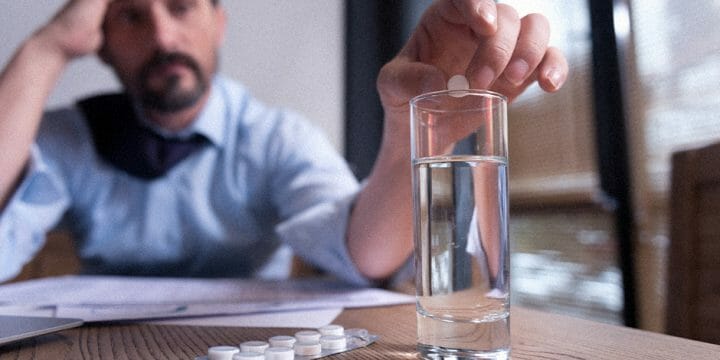Complemented by multivitamin supplements, regular exercise can significantly enhance muscle building, stress reduction, and overall fitness.
However, with many multivitamins marketed nowadays, it’s hard to determine what’ll work for you and how to hit the perfect timing, quantities, and combos for maximized gains.
So, as a fitness coach, I joined our experts to explore and sum up the key benefits and risks of the essential vitamins for athletes and answered one of the trickiest questions: when to take them - before or after working out.
Quick Summary
- Some vitamins are best taken before a workout session, whereas others should be taken after exercise to maximize their effectiveness.
- Vitamins help build and maintain muscle tissues and speed up post-workout recovery.
- B vitamins, particularly B6, B1, and B12, support energy production, red blood cell formation, and muscle repair post-exercise.
- Considering each vitamin's specific roles and benefits, I believe that a tailored approach to vitamin supplementation, aligned with workout schedules, can significantly enhance fitness results.
Is It Best to Take Vitamins Before or After Working Out?
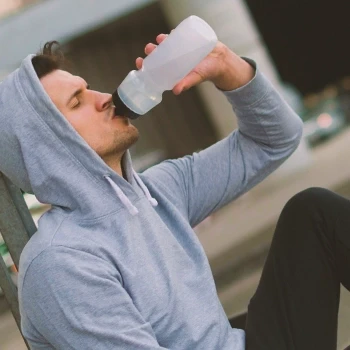
Some vitamins are best to take before, while others after working out to maximize their effectiveness.
It depends on various factors, including:
- The type of vitamins you’re taking (fat-soluble are better taken with an evening meal, whereas water-soluble get better absorbed on an empty stomach, i.e., best taken first thing in the morning before breakfast)
- Their role and the way they may affect exercise (e.g., supporting muscle growth, enhancing post-workout recovery)
- The time when you work out (morning, evening)
- Whether particular vitamin combos are effective or cause an upset stomach and other side effects
- Whether you take any other prescription medications (as even small amounts of particular vitamin supplements can cut their strength), etc.
Reasons to Take a Multivitamin
Even if your diet is nutrient-rich, we advise fueling up your strenuous fitness routine with vitamin supplementation.
Taking multivitamins can ensure you get all the necessary nutrients to:
- Avoid any energy-sucking vitamin deficiencies
- Gain enough energy for intense daily training sessions to achieve your gym goals
- Speed up your post-workout recovery
- Help build and maintain muscle tissue
- Protect your tissues
- Prevent bone density loss, osteoporosis, and other diseases
Vitamins Help You Increase Metabolism Speed
If you aim to increase your metabolism speed, vitamins could help you achieve it. Vitamins like B and C help accelerate fat metabolism, facilitating weight loss.
They also aid in converting fat into energy, improving endurance and performance during exercise while improving overall body composition.
The Roles of Several Essential Vitamins

Vitamin A
Vitamin C
Among ensuring healthy immunity, preventing infections, and a range of other benefits, science claims that this vital vitamin aids in:
- Lowering cortisol levels and preventing muscle damage caused by oxidative stress (proven in individuals who ate five servings of fruits and vegetables rich in this vitamin every day) [1].
- Relieving exercise-induced respiratory symptoms (proven in athletes who took vitamin C pre-workout) [2].
- Collagen production (a structural protein key to strong and healthy muscles, tendons, bones, and skin that enables your joints to handle heavier weights while avoiding injury);
- Metabolizing carbohydrates for fuel to prevent fatigue;
- Formation of anabolic hormones.
You may safely take small doses of vitamin C every day at any time.
Vitamin B Complex
“B complex vitamins are mostly important in metabolism and also in energy processing and recovery. In general, they may help with energy levels. This, in turn helps with maximized results.”
- Dr. David Greuner
B vitamins are key to a healthy metabolism, powering your cells to tap into food's energy. This helps sustain energy during high-intensity workouts, weight training, or similar activities.
Vitamins like B6, B1, B12 help your body use and store energy from protein and carbs, make hemoglobin and red blood cells, and maintain a healthy nervous system. B-complex also plays a role in metabolizing amino acids and proteins, crucial for muscle repair.
Taking a B-complex supplement is great for overall health and fitness performance. Since your body doesn't store these vitamins, it's best to take them daily in the morning.
Vitamin B12, often in animal products, absorbs better with food. And since vitamin C can hinder B12 absorption, space them out by at least two hours.
Vitamin D
According to the National Library of Medicine, vitamin D is crucial for maintaining normal muscle mass, function, and strength [3] and bone protection to withstand strenuous gym sessions, marathon running, and similar activities without inflammation, pain, bone fractures, and similar injuries [4].
It enhances the absorption of calcium (important for muscle contractions and bone strength) and Phosphorus (essential for synthesizing ATP - usable energy form).
The Library also explains that this vitamin helps with force and power production [5] and testosterone amount [6], directly affecting your exercise performance.
Vitamin E
This is another fat-soluble vitamin you can get enough of through a balanced diet.
It’s critical for repairing and building strong membranes of muscle cells that often tear during exercise, fighting oxidative stress and infections, keeping hormonal balance, healthy eyes and skin, and much more.
Although it has powerful antioxidative effects, many studies claim it can cause some adverse effects in athletes if taken before exercise. (Detailed explanation follows.)
Some vitamins you should check out:
Vitamins to Avoid Before and After Workouts

Vitamin C and E
Exercising boosts insulin sensitivity, helping your body absorb nutrients better and use them to build muscle rather than store fat [7] [8]. However, high-dose antioxidant supplements might reduce exercise-induced oxidative stress in those deficient, but they're not always effective in well-trained athletes.
In fact, the National Library of Medicine says that too much post-workout vitamin E and C supplementation might decrease insulin sensitivity and negate some benefits of exercise [9] [10]. (Eating antioxidant-rich foods right after training could cause the same issue.)
In one study, 40 young, fit men exercised five days a week for four weeks, including running and cycling. They also took 1000 mg of vitamin C and 400 IU of vitamin E daily.
This high antioxidant intake actually wiped out the exercise's positive effects on insulin sensitivity.
Antioxidant Supplements
Based on research evidence, a hefty dose of powerful antioxidants other than the two well-known above produces the same results - prevent the post-exercise damage caused by free radicals (reactive oxygen species) and decrease insulin sensitivity [11].
That’s why my advice is to avoid excessive antioxidant intake (especially if you’re at high risk of diabetes), or if you’re deficient, at least take it one hour after training.
Related: Best Time to Take Multivitamins?
FAQ
Are Vitamins Good After a Workout?
Yes, vitamins are good after a workout. They improve the recovery process, muscle regeneration and increase overall performance.
When Should I Take B12?
You should take B12 with your pre-workouts to improve the body's metabolism.
References:
- https://journals.lww.com/acsm-csmr/FullText/2012/07000/Effect_of_Vitamin_C_Supplements_on_Physical.8.aspx
- https://bmjopen.bmj.com/content/3/6/e002416.full
- https://www.ncbi.nlm.nih.gov/pmc/articles/PMC2129105/
- https://pubmed.ncbi.nlm.nih.gov/24179588/
- https://pubmed.ncbi.nlm.nih.gov/26288575/
- https://pubmed.ncbi.nlm.nih.gov/21154195/
- https://pubmed.ncbi.nlm.nih.gov/10593537/
- https://pubmed.ncbi.nlm.nih.gov/19079851/
- https://pubmed.ncbi.nlm.nih.gov/19433800/
- https://www.ncbi.nlm.nih.gov/pmc/articles/PMC3425865/
- https://pubmed.ncbi.nlm.nih.gov/12821281/
About The Author
You May Also Like
